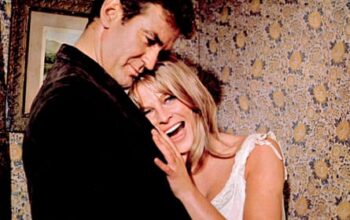Watching new Jeff Nichols release The Bikeriders, starring Austin Butler and Tom Hardy as 60s Chicago greasers, I was reminded of two other movies: László Benedek’s 1953 Marlon Brando vehicle The Wild One, explicitly cited as an inspiration, and The Loveless, the 1981 feature debut of Kathryn Bigelow, the American film-maker (b.1951) who would go on to become the first woman to win a best director Oscar with her 2008 war drama The Hurt Locker.
A symphony of leather-clad posing (with just a touch of Kenneth Anger), The Loveless was a staple of the late-night circuit in the 80s, often on a double bill with David Lynch’s Eraserhead. Sharing directing credits with Monty Montgomery, Bigelow playfully deconstructed masculinity and machismo in a manner that was one part wry to two parts relish. I remember seeing The Loveless at the Phoenix in East Finchley, north London, on a Friday night, and next day heading down to Camden Market to buy a cheap leather jacket. The next time I saw The Loveless (this time at the Scala), I wore the jacket and greased my hair – as did almost everyone else in the audience.
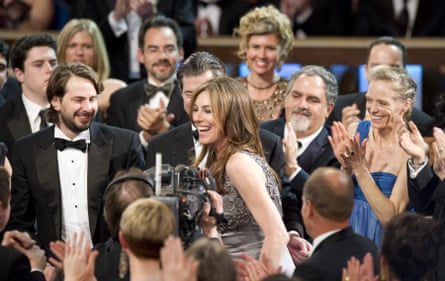
Bigelow’s next movie, the neo-noir vampire western Near Dark (1987), had no less of an impact on me, not least because it was the first film I saw with Linda (we both loved it), to whom I’ve now been married for more than 30 years. A blood-soaked genre pic that melded romance and violence, Near Dark added a muscular sense of pacing to the drippingly stylish visuals of Bigelow’s previous work. At its core was a grungy ensemble cast, several of whom (Bill Paxton, Lance Henriksen, Jenette Goldstein) featured in Aliens (1986), the bigger budget sci-fi/war film hybrid from James Cameron, to whom Bigelow was married between 1989 and 91. Years later, Bigelow’s low-budget bomb-disposal thriller The Hurt Locker would go head-to-head with Avatar at the Oscars, with Cameron’s lavishly expensive sci-fi epic losing the best film trophy to Bigelow’s more arthouse offering.
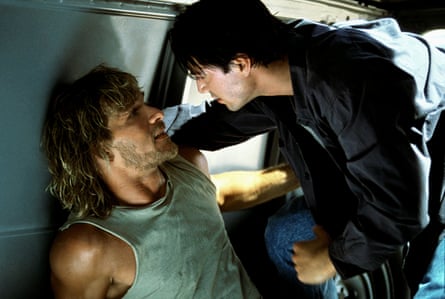
The visceral quality that emerged in Near Dark and struck gold in The Hurt Locker was refined in Point Break (currently unavailable to stream), a head-spinning ride that took surfer riffs from John Milius’s 70s cult favourite Big Wednesday and supercharged them for a thrill-hungry 90s audience. Keanu Reeves and Patrick Swayze are perfectly cast as the undercover FBI agent and surfing criminal whose throbbingly homoerotic relationship plays out amid crashing waves, tumbling freefalls and breathtaking chase sequences. No wonder Edgar Wright used Point Break as a touchstone for his parodic eulogy to action movies, Hot Fuzz, in which Nick Frost asks Simon Pegg: “Ever fired your gun up in the air and gone ‘Aaaaaaargh?’”
Inevitably, Bigelow’s punchy style has ruffled some feathers. Lawrence Kasanoff, executive producer of her brilliantly twisted 1990 cop thriller Blue Steel (featuring a career-best performance by Jamie Lee Curtis), told the LA Times that “the people on the set, they’re like construction workers, and they see this tall, glamorous-looking woman saying ‘Damn it, I want more blood!’”, to which Bigelow added: “That’s the reason I wanted to do it – because it’s a genre dominated by men.”
Later, Bigelow’s prescient sci-fi thriller Strange Days (unavailable to stream) would alarm censors on both sides of the Atlantic with its horrifying rape and murder scene, which plays out from the assailant’s POV thanks to a futuristic VR headset. Ralph Fiennes plays the former LAPD officer who throws up after viewing the attack. “And that,” Bigelow told me in 1999, “is the position of the film-maker” – her point being that the scene had to make the audience feel repulsed. Which it did.
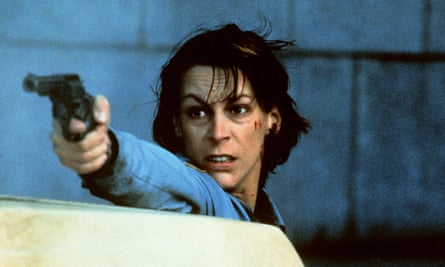
Fast-forward to 2012, and the director’s political thriller about the hunt for Osama bin Laden,Zero Dark Thirty, was accused of glorifying torture – a charge led by columnist turned wingnut conspiracy theorist Naomi Wolf, who outrageously compared Bigelow to Nazi propagandist Leni Riefenstahl! “It’s been extremely surprising,” Bigelow told me, calmly, from the eye of the storm, before adding that some have “a desire to oversimplify, to have a clean, black and white takeaway”, and concluding that it’s “a testament to the power of the medium” that a film could stimulate such heated debate.
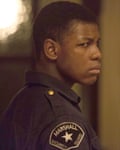
Torture reared its ugly head again in the film-maker’s provocative period piece Detroit (2017), although this time the context left no room for misinterpretation. Revisiting a shocking incident that took place amid five days of rioting in 1967, Detroit unpacks “the anatomy of an uprising” in forceful fashion, exploring a harrowing tragedy that has become emblematic of the racial tensions still haunting the US. The film may not have been a hit, but it remains an urgent work, ripe for reassessment.
Bigelow is now working on an under-wraps Netflix project reportedly “set at the White House as a national crisis unfolds”, with a star-studded cast including Idris Elba, Rebecca Ferguson, Jared Harris and Greta Lee. As a diehard fan, I can’t wait.
All titles in bold are widely available to stream unless otherwise specified.
What else I’m enjoying
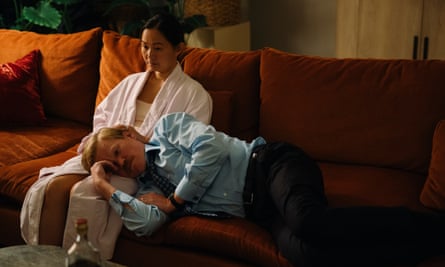
Kinds of Kindness
Yorgos Lanthimos reunites with Poor Things stars Emma Stone and Willem Dafoe alongside Cannes best actor winner Jesse Plemons in this riotously anarchic three-parter about the rules and rituals of human behaviour. By turns hilarious and horrifying, this has genuine WTF?! appeal, even if some viewers may lose patience with the madness.
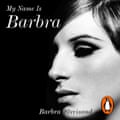
My Name Is Barbra
Clocking in at a whopping 48 hours long, Barbra Streisand’s self-narrated autobiography is the audiobook that keeps on giving! Everything you never thought you needed to know about The Way We Were, A Star is Born and Yentl is here… and so much more. Simultaneously self-aggrandising and self-deprecating, it’s rapturous fare.
Source: theguardian.com


